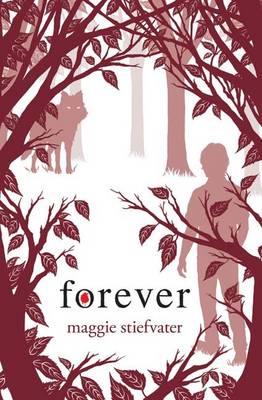Reviewed by girlinthepages on
In this book I was really looking forward to getting answers. Answers to how the werewolf toxin worked, if the meningitis indeed cured same or if it was a temporary fix, if Grace was going to take the risk to try to be cured or if they were going to live as wolves together, etc. I wanted to see more of a relationship blossom between Cole and Isabel, and see what life held in store for the wolves now that a possible cure existed. This book presents a major plot point early on (Tom Culpeper’s legally approved plan to hunt and kill all of the wolves) that hangs thick in the air around the characters throughout the novel, but most of the characters remain stagnant, stuck in the same rut they were in during Linger: Cole and Isabel dance around each other, Sam becomes useless without Grace, Cole seems to make scientific headway regarding the wolves condition without really explaining his findings, and all of the characters grapple with the main question of “What makes these humans wolves?” Yet frustratingly, there is almost no resolution to any of these questions.
The novel also brings Shelby into the mix constantly, with her antagonizing Grace and Cole as wolves and Sam often reliving flashbacks of her cruel and strange behavior as a child. We see small glimpses of Beck through the journals Cole finds, but the novel focuses much more on Sam’s feelings of resentment and loss toward Beck rather than shedding light on his background or motives. As the last book in the trilogy I was hoping to find out so much more about this whole pack who have raised Sam and taken in the wounded and destitute, yet instead the reader experiences the deaths of at least a half a dozen wolves throughout the course of the novel, without even the identity of which wolves surviving the series being revealed. And the ending. I remember how agitated I was upon reading Forever for the first time, and this time was no exception. There’s no closure to any of the major questions, and it begs the question as to what the point of the book was other than to leave a raw, open wound for readers, aching to know what becomes of the yellow-eyed boy and the girl who loved him as either wolf or human. Will they stay together? As humans? As wolves? Do they get to go to college? Are they freed from the influence of Grace’s parents?
Despite the lack of closure in almost all aspects of the book and series, the book wasn’t necessarily bad. Stiefvater is a beautiful writer, especially when it comes to characters, and there’s such enjoyment as a reader residing in the minds of either Isabel’s artic, emotional armor or Sam’s tortured yet poignant inner monologue. This book- this series, really- has so many small, quiet scenes that strike such deep chords of sadness within me at times, such as when Sam goes to pick up Grace after she shifts but is too late, finding only a pile of discarded clothes on the ground, as empty as his hope that he may be united with her again. Stiefvater’s talent is reaching readers in these very small, nuanced ways, building them up to create such an atmospheric tale.
Overall: In many ways this book feels circular, similar to Linger in the same plot problems occurring over and over without any real closure or resolution. Yet the series still resonated with me in the beauty and utter sadness that coexist within one another in these books, and certain places and moments and relationships really dig deeply into me on an emotional level in this series, from the silent, barren woods to the safety and warmth of Beck’s great room. While not without his flaws, Sam is a truly stunning character in YA literature with his profound struggle with humanity and eloquent sadness in his introspective narrative.
This review was originally posted at Girl in the Pages
Reading updates
- Started reading
- 18 December, 2014: Finished reading
- 18 December, 2014: Reviewed
- Started reading
- Finished reading
- 18 December, 2014: Reviewed
